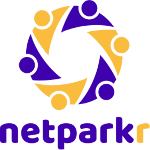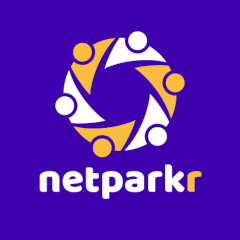Zoltán Bettenbuk is the Chief Technology Officer at SaaS.Group, a portfolio firm of SaaS startups. They purchased Scraper API, a tool that collects website data, including CAPTCHAs and virus detection. It currently makes $400,000 a month and wants to hire more people. He is from Hungary and co-founded Fishbole, a cloud-based flexible classroom tool for students and educators, before joining Scraper API. He has managed engineering and product teams at multinational companies before joining Fishbole
At SaaS.Group, a portfolio firm of SaaS startups, Zoltan serves as CTO. They purchased Scraper API, a tool that collects copious amounts of website data, including CAPTCHAs and virus detection. This makes it easier for developers to access whatever HTML they want. It currently makes $400,000 a month, and this year it wants to hire more people.
What are you currently working on and who are you?
At Scraper API, I serve as the Chief Technology Officer under the name Zoltán Bettenbuk. I’m from Hungary, and I live in Eger with my family. Although our company’s headquarters are in the United States, our personnel are spread throughout a number of other countries. When trying to extract massive amounts of data from websites, developers frequently run against obstacles like CAPTCHAs and bot detection. These are handled by scraper API. With only one “call” to our system, clients may now more easily get whatever HTML they want.
This entails ensuring that our client interactions go well, bringing on new team members, and continually improving the product. Our goal is to remove barriers that significantly complicate data scraping so that developers may do it more easily.
What is your background, and how did you come up with this idea?
I co-founded Fishbole, a cloud-based flexible classroom tool for students and educators, where I am now the CTO, before committing time to Scraper API. It’s exciting because I’ve had the chance to oversee and supervise the engineering team, build the technology stack, and collaborate closely with the other co-founders to make sure that our goal of developing an app with an easy-to-use interface for flipped classes is accomplished. I managed engineering and product teams at multinational companies including LogMeIn, Dynata, and T-Systems before I joined Fishbole.
My team and I saw that Scraper API has the ability to speed up a procedure that may contribute to the success of their respective industries, much like Mailchimp does for email marketers.
How did you turn a concept into a finished product?
Dan Ni launched our business in 2018, but we took it over in August of that year. He ran into the same problems with his web crawling efforts after leaving Wall Street and becoming freelancing (such setting up proxy servers and redistributing IP addresses). He created an API (application programming interface) that made it simple to create web scrapers.
Due to its potential as a web parser that provides capabilities that competing solutions in our industry do not, we decided to invest in parser API. It also fits into our “low-touch” SaaS company category since its customer success component provides instructional tools and is created so that the majority of customers may buy it without having ongoing one-on-one interactions with a salesperson.
What marketing techniques did you use to grow your company?
Dan established Scraper API and was in charge of internal marketing. He and his early staff would frequently ask developer blogs for lessons and sponsor both YouTube channels and developer blogs to advertise the tool. Our affiliate program was also started by them.
The majority of our organic traffic and new visitors comes from blog entries. The early team had gained momentum with a blog post outlining the types of companies that utilize web scrapers. The next section included top-ten rankings for several web crawling-related topics.
We are now putting greater emphasis on improving our marketing approach. With the help of outside contractors and increased SEO funding, we anticipate that by redesigning our website, we will be able to build more distinctive pages that draw users and improve the user experience.
What are you doing right now? What are your long-term goals?
A marketer, software developers, business owners, and investors make up the team. Our staff includes Ian Kerins, who oversees marketing and has a wealth of experience about the sector. The majority of our team’s work is carried out by Ian Williams, our senior engineer and a founding member of the Scraper API team prior to the purchase. Tim, Tobias, and Ulrich also contributed to the founding of SaaS.group, our parent business. In Germany, Tim and Ulrich are incredibly powerful businessmen and investors, and Tobias has a wealth of startup expertise. I really respect the unmatched breadth of knowledge, creativity of thinking, and kindness of my colleagues.
I’m happy to announce that the changes we’ve been implementing have gotten off to a great start! This year, we want to engage additional workers, and the Scraper API family will keep growing in the years to come. Large websites continue to view data scraping badly (particularly those that are regularly scraped), hence the bulk of scraping businesses and entrepreneurs work in secret. An original API is scraper. Since the acquisition of SaaS.group, we have been concentrating more and more on scalable data retrieval with privacy support. Although we truly think that it is acceptable to gather publicly accessible information from the Internet, we go to great lengths to safeguard people’s privacy. Our long-term goal is to develop into an enterprise-grade cleaning service that offers all the capabilities and throughput that big businesses need.
What have you learned most since purchasing Scraper API?
One of the most significant lessons I have learnt from my experience at Scraper API is that patience and a supportive team are essential to a successful acquisition and transition phase. There are still a lot of unknowns and surprises to deal with, even if you think you know all there is to know about the company you’re buying. When you work as a great team, everyone can help one another, which expedites the procedure.
Thankfully, the staff was acquired as well, so we could benefit from their in-depth industry knowledge. I’ve learnt that startups with early momentum have many challenges that you must either learn to live with or invest effort in overcoming as I’ve previously worked largely with businesses (LogMeIn, T-Systems, etc.).
The ongoing cat-and-mouse game that scraping involves is analogous to that played by advertisers and ad-blocking software. The technology we create is really cutting edge when it comes to staying on top of the most recent blocking strategies; the cat-and-mouse game was formerly a manual procedure, but we are now creating newer, more autonomous ways to stay unblocked.
What were the toughest obstacles you overcame? What were your biggest mistakes?
For us, knowing the technology was the biggest challenge. We needed to make sure we knew what had already been built and how to execute any necessary improvements because Scraper API was an established company at the time of the acquisition. A highly scalable CURL (client URL) library is not a scraping platform. Years of expertise and proof of what customers have demanded over time are essentially hard-coded into the source code. It may be seen similarly to how a tree’s age rings can be seen. Dan helped us over the six-month transition period even though it was challenging to get used to the new product.
In order to satisfy the demands of our customers on a daily basis, minimize technological debt, and offer new features and improvements, one must continuously oversee efforts as the engineering team’s leader. That is a challenging task, and I know we don’t always complete it perfectly.
The team struggled with accounting prior to the purchase; according to Dan, it would have been better to hire someone sooner. It was essential to handle finances and transition to a new charge structure in order to start 2021 with a steady product and ambitious aims.
What equipment and sources would you recommend?
We use CanIRank to help us with SEO and put its recommendations into practice to improve our inbound marketing efforts. Prerender is a helpful tool for adding coding into our website that increases its exposure on search engine results pages, and Snip.ly is a great tool for shortening URLs.
The books Don’t Make Me Think by Steve Krug, Emotional Grit by Dr. Neeta F. Bhushan, and Managing Humans: Biting and Humorous Tales of a Software Engineering Manager by Michael Lopp are absolutely crucial to me. For team leaders, Managing Humans is both humorous and practical, Emotional Grit has made me a more sympathetic leader, and Don’t Make Me Think is a classic for developers that I like sometimes rereading.
For further information
Here is a link to my Twitter profile. Our blog offers useful knowledge about web harvesting and related subjects.
We gather unique business case studies from all over the internet, to inspire you with a wide range of business ideas. This case study was supervised by our team and it definitely caught our interest. You can find other inspiring business stories here.







